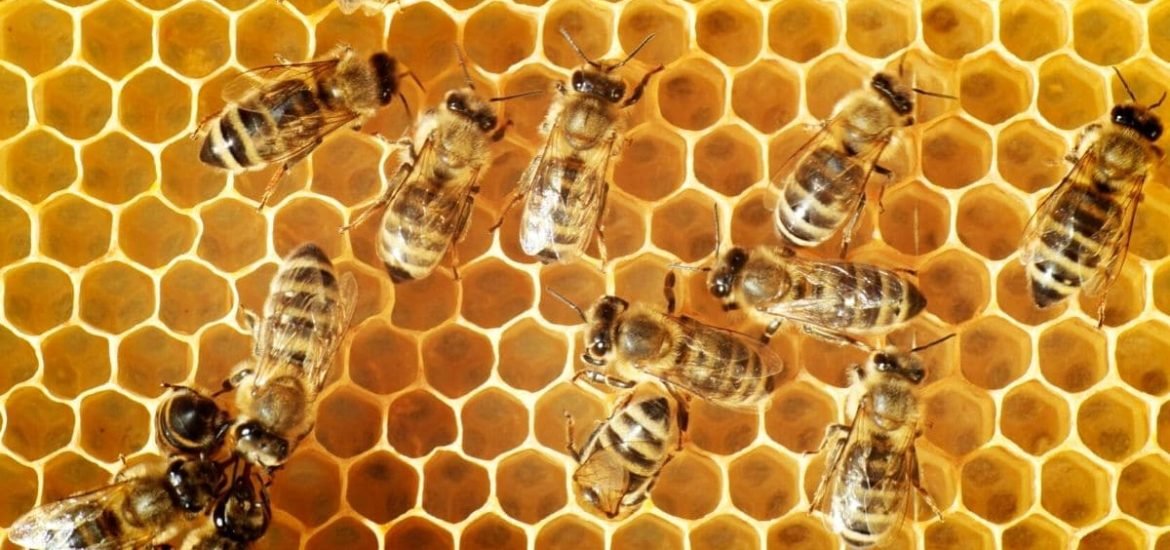
Engineered strains of bacteria could help protect honeybees by producing RNA that targets deadly mites and the dangerous viruses they carry. The modified bacteria increased the chance of survival by 36 per cent when bees were infected with the deadly “deformed wing” virus carried by the Varroa mite, according to a new paper published on 31 January in Science (1).
Honeybees are essential pollinators. But bee numbers are dwindling largely due to mites, pathogens, and possibly the widespread use of harmful pesticides and herbicides. Previous studies show that exposure to harmful chemicals can significantly reduce the number of protective bacteria in the honeybee gut, which might be contributing to the unprecedented decline and deadly colony collapse.
Just like humans, bees have their own microbiome, a population of beneficial bacteria that live in the intestines. But unlike humans “bees have this remarkably consistent and conserved microbiome”, explained Sean Leonard, lead author and a graduate student at the University of Texas in Austin. The bee microbiome consists of the same six to eight gut microbes, which keep bees healthy.
The researchers at the University of Texas wondered whether engineered bacteria could potentially be used to broadly inoculate bees against disease. They focused on one particularly troublesome pathogen, the increasingly common deformed wing virus carried by Varroa mites, as well as the mites themselves, which can also cause destructive damage as they feed on the fat stores of bees.
The scientists genetically modified a common gut bacterium called Snodgrassella alvi to produce two separate strains: one to target the virus and another to target the mites. The bacteria release double-stranded RNA molecules that reduce gene activity in either the mites or the virus, essentially causing them into self-destruct. In other words, the mite or virus is tricked into destroying its own DNA.
To test their approach, they introduced the modified bacteria to hundreds of bees in the laboratory. Amazingly, bees were 36 per cent more likely to survive 10 days after exposure to the virus and mites were 70 per cent more likely to die within the same timeframe when feeding on bees with modified gut microbes.
While the results are certainly promising, the authors caution that the actual use of engineered gut bacteria is a long way off. One of the biggest fears is that the engineered bacteria might escape into the wild and infect other insects, or even larger animals. Although, the researchers suggest the risk is probably low since the engineered bacteria are highly specialized to live in the gut of honeybees and therefore, wouldn’t survive for long outside the gut. Moreover, the particular virus targeted by the bacteria is only known to infect bees.
Indeed, such a highly targeted strategy could allow farmers to fend off pests while minimising the impact on the surrounding environment and other innocent creatures. And with this type of approach, the bee microbiome would continue making protective RNA without the need for — and the accompanying cost of — repeated treatments.
Nonetheless, further research is still needed to determine the safety and efficiency of using this technology in an agricultural setting. In addition, the approach would also need to be scaled up and tested in more complex environments beyond just a simplified and highly controlled laboratory setting. Furthermore, the question still remains of how this technology would be effectively regulated in the wild.
(1) Leonard et al. (2020) Engineered symbionts activate honey bee immunity and limit pathogens. Science. DOI: 1126/science.aax9039